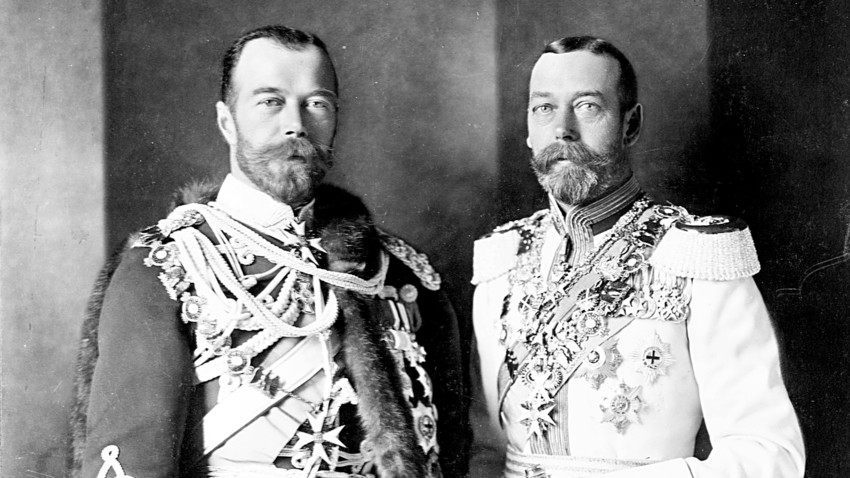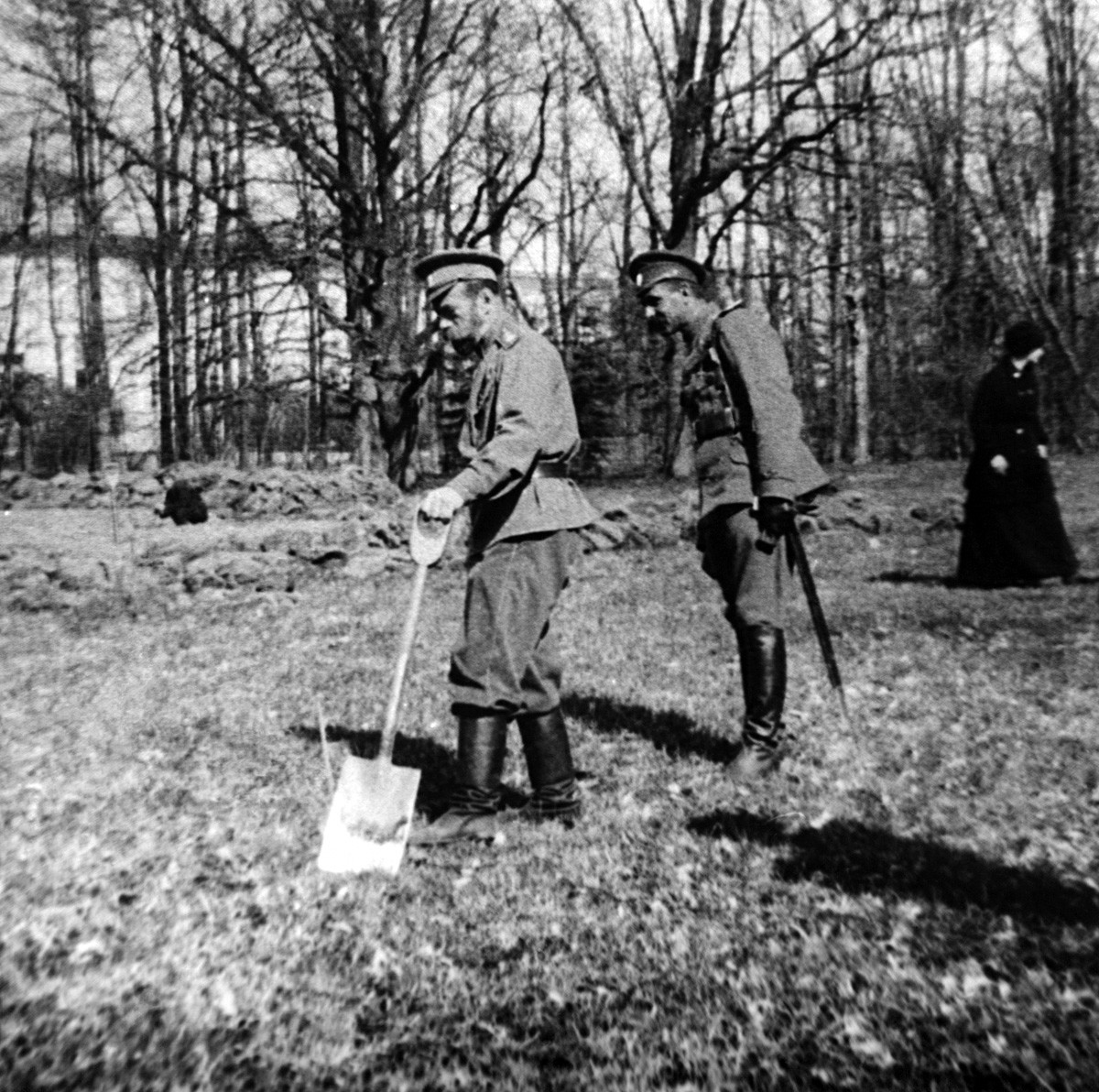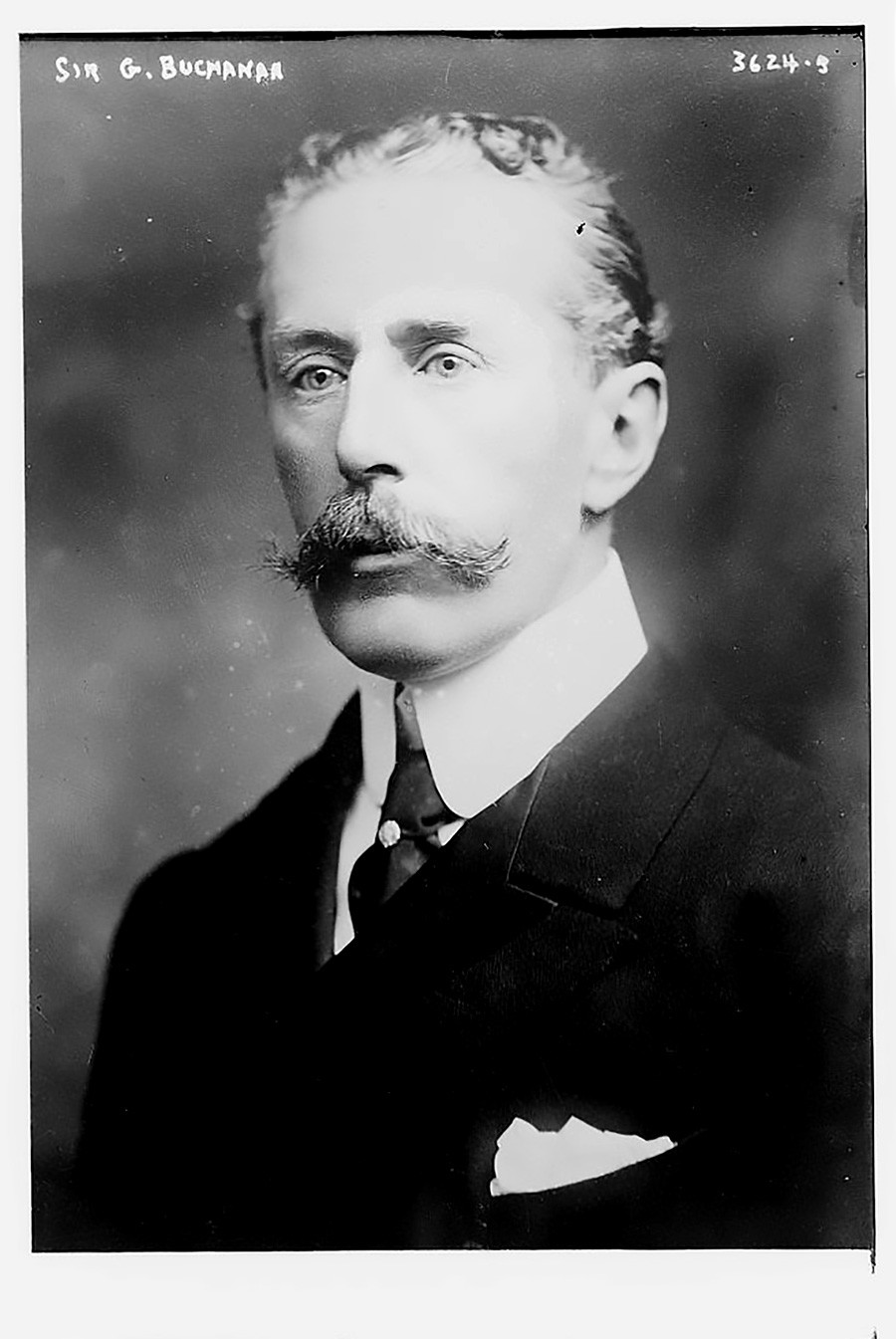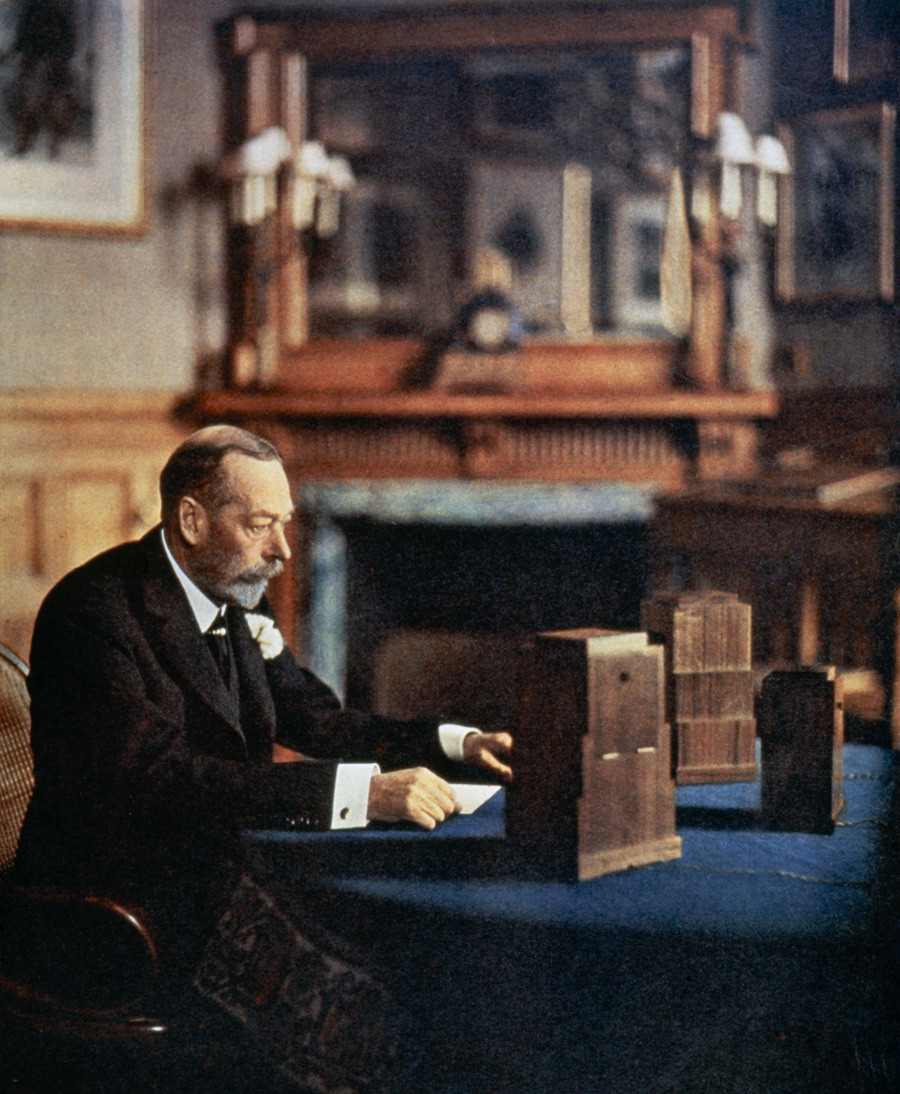
A portrait of George V of Great Britain and Nicholas II of Russia. Berlin, 1913
Getty Images“The murder [of the Russian royal family] shook my father’s confidence in the innate decency of mankind….. My father had personally planned to rescue him [Nicholas II] with a British cruiser but in some
The fate of the dethroned

Emperor Nicholas II of Russia (L) holds a shovel while being under a house arrest in Tsarskoye Selo
TASSThe government placed the royal couple under house arrest at Tsarskoe Selo and, as the then Russian minister of foreign affairs Pavel Milyukov contended, supported the idea of sending the tsar to the UK. Milyukov addressed the British ambassador to Russia Sir George Buchanan who later reported that London was ready to accept the Romanovs and “for those
The story was confirmed by the Provisional Government’s justice minister and its future leader Alexander Kerensky. He was told that “the government of England does not consider it possible while the war continues to extend its hospitality to the former tsar” (link in Russian).
The ambassador’s version of the story published in his memoirs in 1923, My Mission to Russia was strikingly different. “Our offer remained open and was never withdrawn,” wrote Buchanan. He blamed the Russian side, arguing that the Provisional Government having encountered opposition from socialist politicians “did not venture to assume responsibility for the Emperor’s departure, and receded from their original position.” In 1927, when Kerensky in his memoirs stated the opposite, the Foreign Office repeated Buchanan’s account and accused the former Russian premier of lying

Sir George William Buchanan in 1915
Library of CongressThe “true facts” were apparently this: “He [George V] must beg you to represent to the Prime Minister that from all he hears and reads in the press, the residence in this country of the ex-Emperor and Empress would be strongly resented by the public, and would undoubtedly compromise the position of the King and Queen from whom it would generally be assumed the invitation had emanated…” That’s what Lord Stamfordham, George V’s Private Secretary wrote to the British Foreign Secretary in early April 1917.
“Growing

King George V of Great Britain (1865 - 1936)
Getty ImagesThe researcher argues that though “King George V was a moral coward, for losing his nerve and worrying about the political consequences of granting asylum to the former tsar and his family … they were failed by their royal relatives, other governments, and Russian monarchists. Therefore, all the royal houses of
If using any of Russia Beyond's content, partly or in full, always provide an active hyperlink to the original material.
Subscribe
to our newsletter!
Get the week's best stories straight to your inbox